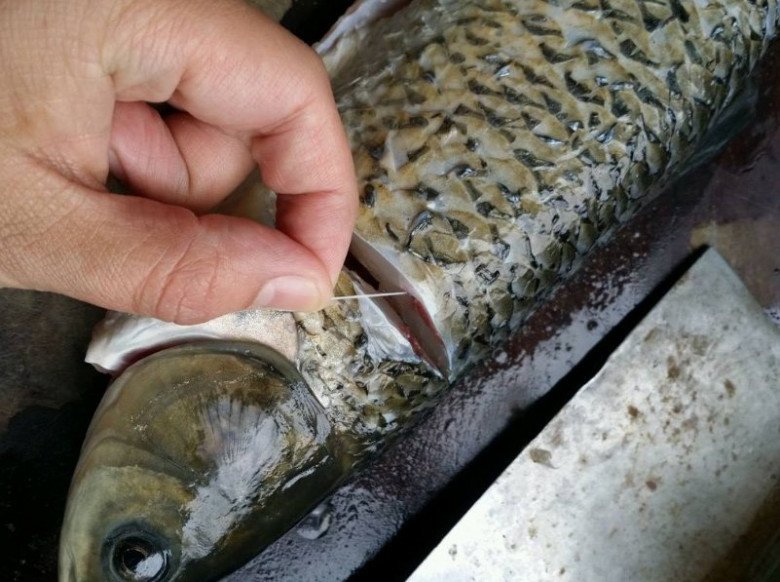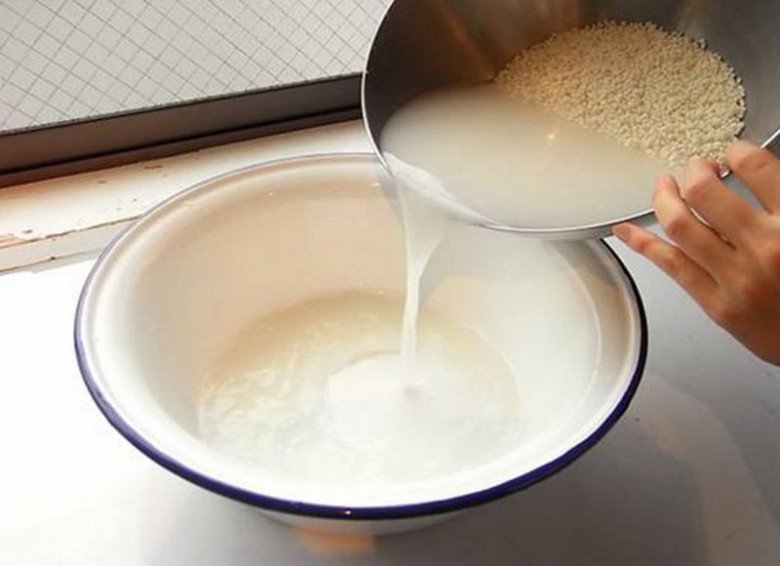The strong, pungent odor of fish can be a turn-off for many, and finding ways to reduce this odor during cooking is a common challenge for home cooks. While some people rely on alcohol and vinegar to rinse and neutralize the fishy smell, there are actually several other effective methods worth knowing about.
Fish Prep: Removing the Veins and Scraping the Black Membrane
After your fish has been gutted and cleaned by the fishmonger, it’s important to give it a thorough rinse. Scrape away any remaining black membrane from the belly cavity and ensure that all excess blood is washed away. This initial step is crucial in reducing the fishy odor.
Once the fish is cleaned, use a sharp knife to make a horizontal incision about 1cm away from the head and body. You’ll notice a thin, white vein; gently pull it out from both sides of the incision. Performing this step on both sides of the fish will significantly reduce the fishy smell.

Using Lemons to Neutralize Odors
Lemons are not only fragrant but also excellent at reducing fishy odors. Simply place thin lemon slices along the length of the fish after prepping, or alternatively, squeeze lemon juice over the fish, making sure to coat all surfaces. This method will leave your fish smelling fresh and tasting delicious.

Marinating the Fish
Marinating is a great way to not only reduce the fishy odor but also enhance the flavor of your dish. After prepping the fish, cut it into sections and make incisions along the body. Then, apply a marinade of salt, cooking wine, onion, and ginger, and let it sit for about half an hour.
Soaking in Rice Water
One of the easiest ways to get rid of the fishy smell is to soak the fish in rice water. Simply immerse the fish in rice water for 15-20 minutes, then rinse it with clean water and pat it dry before cooking. Be careful not to soak it for too long, as this may cause the skin to peel or affect the freshness of the fish.

So, there you have it! No need to rely solely on alcohol and vinegar to neutralize fish odors. Give these tips a try, and you’ll be enjoying odorless, delicious fish in no time!
“Two Vietnamese Beauty Queens and Their Affordable Hair Secret”
Contrary to popular belief that beauty queens often indulge in expensive hair care treatments at luxurious spas, Miss Ngoc Han and Miss Phuong Khanh opt for a more accessible approach to maintain their gorgeous tresses. These beauty queens have chosen a simple and affordable hair care routine, proving that achieving luscious locks doesn’t always require a hefty price tag.
The Magical Elixir for Your Roses: Unlocking Thriving Growth, Abundant Buds, and Blossoms as Big as Bowls
When it comes to watering your roses, you can do more than just using plain water. Imagine a secret weapon that takes your rose garden to the next level. We’re talking about a special type of water that goes beyond the basics, infusing your roses with an extra boost of nutrients. It’s time to unlock the potential of your blooms and watch them flourish like never before.
The Magic Elixir for a Blooming Paradise: Unveiling the Secret to a Flourishing Trumpet Vine
Bougainvillea is a drought-tolerant plant, and once it’s established, you can cut back on watering. When the plant is in full growth and blooming, water it 3-4 times a week during cooler parts of the day, like early morning or late afternoon. This will ensure its vibrant growth without overwatering.





































